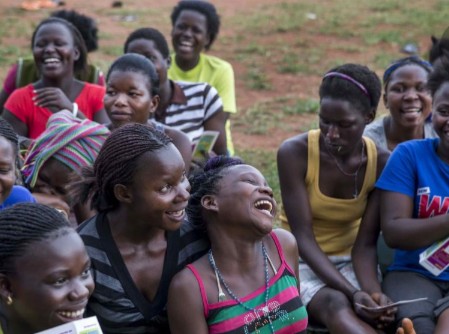|
Getting your Trinity Audio player ready…
|
By Joyce Mukucha
Adolescent girls and young women face significant barriers that undermine their sexual and reproductive health and rights (SRHR) including lack of access to comprehensive sexuality education and to essential sexual and reproductive health services and those who reside in urban-distant communities are facing the real dilemma.
Spiked Online Media reached out to different girls in Chiedza community of Hurungwe in Mashonaland West Province who narrated the challenges they face when it comes to accessing SRHR services. They highlighted socio-cultural issues and lack of education as major impediments.
The majority of them explained that due to the information gap, they were still lagging behind in as much as making informed decisions about their sexuality is concerned whilst others said lack of comprehensive sexuality education was increasing exposure to risk and unintended adverse outcomes which include Sexually Transmitted Infections (STIs) and unintended pregnancies.
“In our community, as girls, we don’t have that freedom to make informed decisions about our sexuality and reproductive health yet it is critical for fulfilling our human rights and ensuring access to education, economic opportunities, social empowerment, and financial independence. Due to lack of sexual and reproductive health, unwanted pregnancies, STIs and complications during pregnancy and childbirth among adolescents frequently arise due to risky sexual behaviour,” said a 19-year-old girl who identified herself as Mumu.
Melinda Muonde (not real name) a 22-year-old lady said, “These challenges are often linked to socio-cultural issues associated with sexuality which result in disparities in the SRH of adolescent girls. Culture in our community provides rules of sexual conduct between sexes which shape knowledge, beliefs, and practices regarding the sexuality of adolescent girls and influence SRH. We don’t have enough knowledge when it comes to menstrual health and we struggle to access contraceptives and as a result, we have unprotected sex which leads to the contraction of STIs such as HIV, and end up having unwanted pregnancies.
“We are grown-up girls and we also want to engage in sexual activities but the challenge we have is that we do not have adequate information on safer sex. It’s not something we can discuss with our parents or guardians because they tell us that it’s prohibited to have sex when you are not yet married. When we visit the clinic, healthcare workers shout at us and they don’t give us the services we will be in need of such as contraceptives. As girls in rural Zimbabwe, we are crying for sexuality education, improved access to SRH care and services, social support.”
Other girls who spoke to this publication pleaded with the government of Zimbabwe, civil society organisations, and other relevant stakeholders to work tirelessly in strengthening laws, policies, and practices that ensure that the human rights of girls and adolescents are respected especially those in rural areas.
In an interview, Zimbabwe Community Health Intervention Research (ZICHIR-e) Director, Walter Chikanya said, “As an organisation, we figured out that the dilemma faced by rural girls in terms of access to Sexual Reproductive and Health Rights include issues to do with psychosocial access. There is lack of psychosocial support. Also, it has something to do with the norms around the community, expectations from that community including culture, and the expectations of spiritual fathers from a young girl which as a result hinder young girls to access SRHR.
“There are also issues of menstrual health and issues to access sexual education. Young people have their way to access information. For instance, social media and sometimes in rural areas they don’t have a network so it becomes a dilemma for a rural girl to receive adequate information pertaining to SRHR,” said Chikanya.
He also pointed out that issues of poverty impede access to SRHR services in rural communities.
Chikanya said ZICHIR-e was committed to making concerted efforts in ensuring that challenges faced by rural-based girls and young women are dealt with.
According to the Center for Reproductive Rights, because of failures to enable and empower adolescents to access comprehensive reproductive health care including contraception, abortion and maternal health care-one in four adolescents has an unmet need for contraception and seven million adolescents give birth each year.
Center for Reproductive Rights is an organisation that works around the world to guarantee adolescents the full exercise of their sexual and reproductive health and rights (SRHR), including their rights to make informed decisions about their sexuality and reproduction and to access sexual and reproductive health services.
The organisation pointed out that early pregnancy and childbearing pose unique risks to adolescents’ health and well-being.
The Center for Reproductive Rights has been at the forefront of spearheading litigation to affirm girls’ autonomy, decision-making, and access to sexual and reproductive rights and health services, securing legal victories in national and regional courts and accountability bodies.
